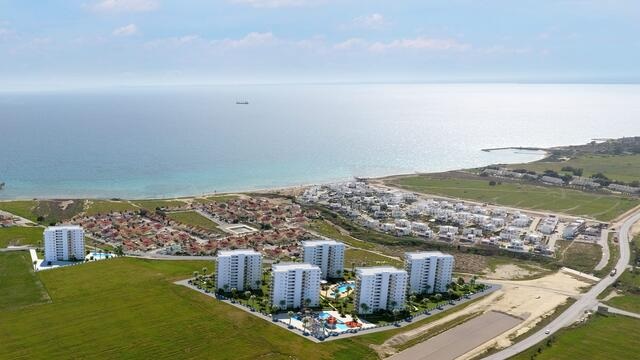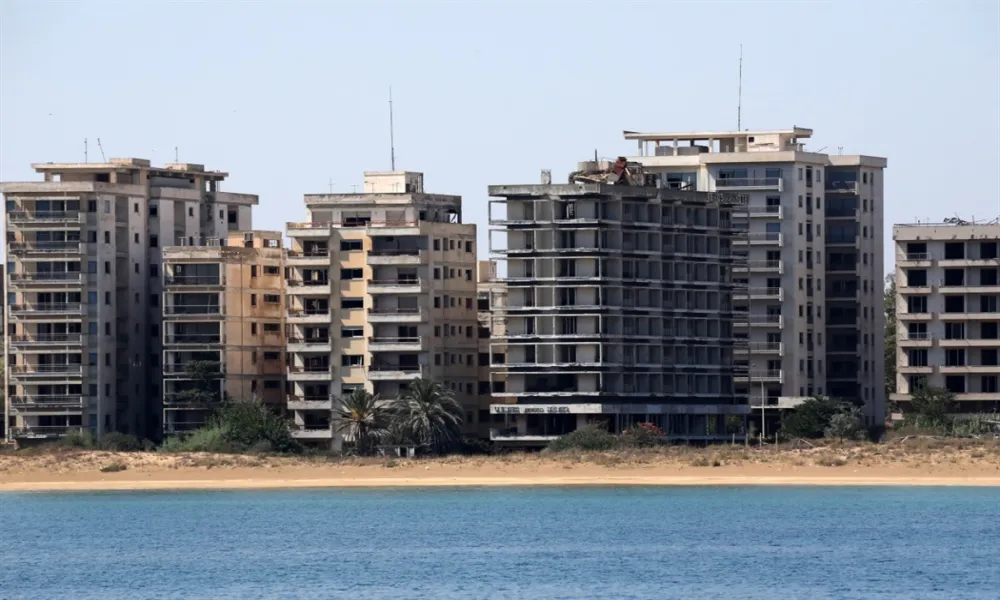For Greek Cypriot 1974 refugees, property is not a “chapter” in negotiations; it is the chapter. Why? Because the displacement severed families from homes, farms, workshops, and coastal plots on a massive scale, roughly one-third of the GC community was uprooted; and because about 36% of the Republic’s territory has remained under occupation ever since. Property is inheritance, collateral, livelihood, and the most litigated right in the Cyprus dispute; it is where justice is most tangible (title deeds, compensation, restitution) and most delayed.
Yet for five decades, the Cyprus Republic's approach has been piecemeal rather than strategic. That vacuum now produces perverse outcomes: it blunts incentives for a comprehensive settlement, keeps refugees in a limbo of partial relief and sporadic hope, and, amid a tightening legal clampdown, both isolates the north and hardens its dependency on Turkey.
Into this turbulence steps a new proposal: DISY’s bill to establish a National Fund for Loss of Use of Occupied Properties, channelling the existing 0.4% transfer levy and other resources to compensate refugee owners. The House Refugees Committee is set to discuss it this Tuesday with sponsors presenting it as justice long overdue. It is undeniably significant. But in the absence of a broader strategy, the Fund risks being oversold as a brake on distress sales or a substitute for equal-treatment justice across very different refugee experiences.
According to DISY “the Fund aims to provide tangible financial support to those deprived of their property for so many years, as recognition of the continuing economic and moral damage they endure. This support is not only an act of justice; it also serves as a vital link connecting younger generations with the occupied homeland, cultivating memory and pursuit of rights”.
Legally, the pillars are well known. The European Court of Human Rights (ECHR) affirmed Turkey’s responsibility for denying access to GC property (Loizidou v. Turkey), while later accepting the Turkish Immovable Property Commission (IPC) as a domestic remedy for individual claims (Demopoulos). In EU law, Apostolides v. Orams established that Republic of Cyprus court judgments concerning property in the north can be enforced in other EU states, even though the EU acquis (body of EU law) is suspended there.

In practice, the rulings, combined with the Ministry of Foreign Affairs' travel/buyer advisories are an imperfect yet workable toolbox. What's missing is a national strategy to put them to work.
In 2025, enforcement sharpened. Courts jailed foreign nationals for brokering sales of GC-owned properties in the north, while authorities continue the prosecution of property developer Simon M. Aykut, allegedly tied to €43m in illegal sales. Reporting indicates foreign participation in property transactions in the north has cooled. The net effect? Foreign buyers grow wary; GC owners grow fearful; and the northern economy leans further on Turkey, deepening the dependency many in the south decry.
On rhetoric, fear and the retaliation spiral
Following the arrests of five Greek Cypriots in Trikomo/İskele, public statements leaned into the language of “abductions” and “kidnappings.” Beyond the legal merits, that framing has a chilling effect: it signals that visiting ancestral property is perilous and nudges GCs to stay away. Crucially, the detentions in the north were widely viewed as retaliatory, a tit-for-tat response to the Republic’s prosecutions of property usurpation (including the high-profile case against Aykut and earlier actions starting with Turkish Cypriot lawyer Akan Kürşat). Fear also has knock-on effects: practitioners warn it can push some foreigners to travel via Ercan/Tymbou rather than recognised ports in the south, an entry route the Republic deems illegal, thereby weakening leverage at the legal points of entry.
Instead of adopting policies to release the detainees quickly and lower tensions, both sides distance themselves from such a course, letting the ordeal of the five go on. Which raises the uncomfortable question: are the detainees being used as instruments in the political spiral, rather than as people whose immediate release should be the priority? Is that really the outcome the GC side wants?

Many tiers of loss: unequal burdens for refugees and blind spots
Diversity matters. For decades, the state partly offset losses for certain categories of those affected by property loss (e.g., enabling industrialists/hoteliers to rebuild elsewhere) while agricultural households, who lost not only land but entire seasonal value chains, often received thinner, less-tailored support. A one-size cheque for “loss of use” cannot correct that asymmetry or restore agency. Nor will it, on its own, reduce pull factors in the north (fast permits; easy builds) or address push factors in the south (slow adjudication; fragmented registries; under-serviced claims). Not to mention the uneven quality of refugee housing and the unequal treatment in title: some were granted ownership, others never were.
And if we want the full picture, we must widen the lens. It’s not only about land now under Turkish control. it’s also about parcels inside the Sovereign Base Areas and tracts in the buffer zone that are effectively frozen or requisitioned for national security or peacekeeping needs. It’s about Turkish Cypriot properties in the south under the Guardian’s administration, where, in practice, some assets double as holiday homes for well-off families who rent out their own properties while enjoying TC houses, yielding little, if any, return to the state and none to refugees who, in many cases, still struggle to live with dignity. Any credible policy has to acknowledge all of this, or it will keep reproducing the very inequities it claims to remedy.
Lawyers’ advice: Steady over spectacle
Practitioners who have worked these cases for decades insist the Republic should marry firmness with predictability. Keep pursuing profiteers of usurpation, consistently and transparently, while avoiding panic politics and language that frightens ordinary movement across the line. They urge a smarter Fund design, indexed to property type and pre-1974 income streams, with tools to convert payouts or guarantees into productive assets today.
At the same time, legal advisors insist on state support, calling for systematic use of the existing legal architecture, support for appropriate IPC claims without prejudice to political positions. Such an approach, they told Politis, coupled with streamlined, state-backed civil actions in EU jurisdictions would make recourse more predictable rather than ad hoc. Finally, they stressed that property policy must be explicitly linked to settlement incentives, so refugees can convert frozen rights into live options the day a deal is signed.
Economics of the property question
Echoing earlier academic and economic studies on the Cyprus property question, one economist who dealt with the property issue extensively stressed that linking the refugee issue to property rights is misguided from the outset. He told Politis that the main concerns are methodological and financial: without a complete and verified property owners’ catalogue, any credible framework is impossible, while the overall cost would be astronomical.
Another major obstacle, he noted, is that for decades these properties have been inaccessible and unused, which makes it extremely difficult to assess not only their market value but also the qualitative cost of lost use, livelihood and generational ties. Added to this are the long-standing difficulties in recording the exact level of state assistance provided since 1974 due to the absence of comprehensive data, as well as the frictions among refugees themselves caused by decades of unequal treatment and uneven forms of support.
In the 1970s, the total value of lost property was estimated at nearly £10 billion Cyprus pounds, with private holdings making up about 80% of that amount. A state-managed compensation fund, he warned, would inevitably be swamped by claims that no public budget could sustain. Even though the number of applications to the Immovable Property Commission in the north, which examines claims for restitution, compensation and exchange, has already been significant, at times so significant that it has forced politicians to update their narratives and distorted the wider discussion in the negotiations, it would pale in comparison to the wave of claims such a domestic fund would unleash.
Commenting on injustices, the economist pointed out that a different approach early on could have prevented today’s messy outcome. He cited, for instance, former TC leader Rauf Denktash in 1974, who had explicitly made the link between Turkish Cypriots displaced to the north and the allocation of Greek Cypriot properties. Also, post-war Germany, where compensation schemes for those displaced from the east were financed through fiscal tools that redistributed income from wartime “winners” to those who lost everything.
Against this backdrop, the economist warned that proposals like the one to be discussed in the House of Representatives on Tuesday may seem designed to please voters’ pockets rather than to address the structural problem. “Such initiatives are often shaped more by electoral expediency than by the complexities of the property question,” he said, expressing concern that the parliamentary debate could drift in this direction, since no party wants to risk displeasing refugees or appear as the one that disagrees with compensation.
As he concluded: “The politics around the property issue were governed by temporariness, rightly or wrongly. No one can dispute the challenges faced by the Republic of Cyprus after 1974, and no one can dispute the enormous economic cost of the war. But what is certain is that it cannot be solved with a simplistic fund.”
